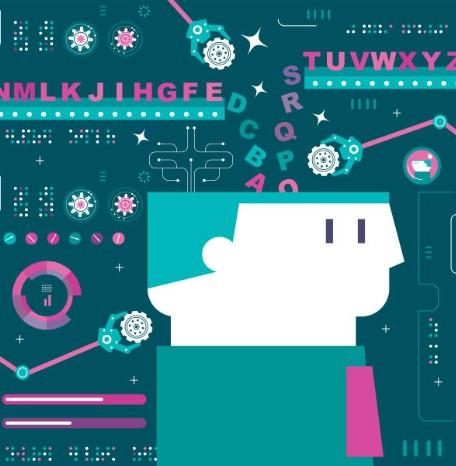
What can bilingual brains teach us about how we navigate the noisy world around us?
That question brought the work of Nick Pandža, associate research scientist in the Intelligent Human-Machine Systems Division at ARLIS, to Donostia-San Sebastián, Spain, where his team was invited to present at the 15th International Symposium on Bilingualism (ISB15). The symposium is one of the world’s leading forums for research in bilingualism and multilingualism, bringing together scholars from linguistics, neuroscience, psychology, and sociology.
Pandža’s paper, which was backed by a 2023 Brain and Behavior Institute Seed Grant, “Bilinguals exert less effort rejecting non-targets compared to monolinguals in a novel auditory stochastic figure-ground task,” focused on how bilingual experience affects our ability to focus on relevant sounds in cluttered auditory environments: think crowded restaurants, busy streets, or mission-critical operations. This research was performed alongside postdoc Michael Johns, graduate assistants Morgan Belcher and Charlie Fisher, and co-research leads Jonathan Simon, Samira Anderson, and Stefanie Kuchinsky, bringing together an interdisciplinary group of researchers spanning applied linguistics, cognitive neuroscience, hearing and speech, electrical and computer engineering, and biology fields across the University of Maryland.
His team’s talk discussed results from a language-neutral auditory task and revealed an intriguing finding: bilingual listeners spend less cognitive effort than monolinguals when filtering out distractions.
It’s more than an academic insight. The larger project aims to build language-agnostic diagnostic tools to identify adult auditory processing difficulties. This effort could help audiologists, cognitive researchers, and national security teams alike assess listening challenges with fewer cultural or linguistic predispositions.
That mission aligns perfectly with Pandža’s interdisciplinary career. Trained in linguistics, cognitive neuroscience, and data science, he earned his PhD from a cognition-focused Second Language Acquisition program at the University of Maryland, where his dissertation explored how non-invasive brain stimulation can accelerate language learning. He holds appointments with the Brain and Behavior Institute, the Maryland Language Science Center, and the university’s Neuroscience and Cognitive Science program.
At ARLIS, Pandža applies his expertise to a wide range of defense and intelligence challenges, from assessing aptitude for digital skills such as computer programming to decoding human-machine interactions in high-stakes settings. Whether he's collaborating on cognitive health or leading technical evaluations of the cognitive impact of next-generation geospatial tools, his research pushes the boundaries of understanding human performance.
Pandža’s path reflects a curiosity about language, cognition, and the systems that connect them. His team’s ISB15 presentation is just the latest example of how that curiosity translates into real-world impact, one language, one dataset, and one international venue at a time.
